
This article was originally published by the Higher Education Policy Institute. Read their version here.
Following the release of the QS Best Student Cities 2025 ranking – and, as it has done since 2018, London occupies the top spot. Ben Sowter, QS Senior Vice President, assesses the part a university’s location plays in reputation development.
London cements its reputation as the best student city in the world
While the top five best student cities have been relatively stable since 2021, London has been untouched at the top.

London leads the UK in many QS Best Student Cities ranking aspects
In most of the lenses we use to compile the QS Best Student Cities, London performs very well.
Alongside favourable graduate outcomes London has an unmatched concentration of high-quality universities, with the UK capital home to two of the world’s top 10 best universities in the QS World University Rankings 2025. It also has the most universities in the top 500, with nine – Seoul and Paris have eight and seven respectively.
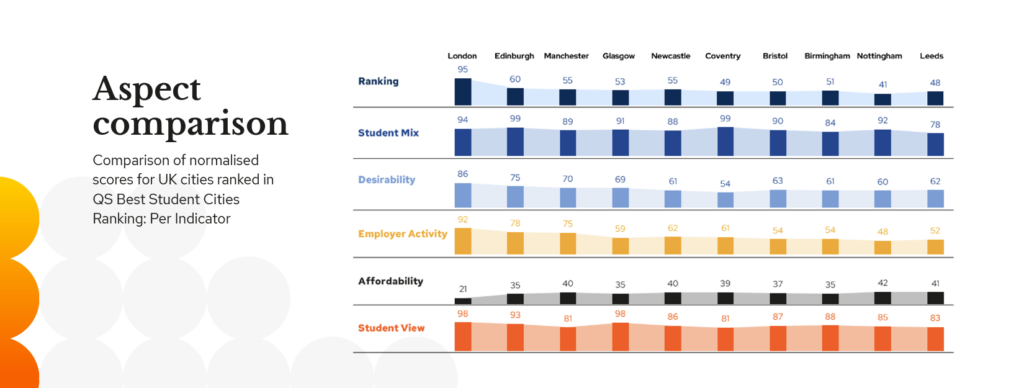
Since the 2022 edition of QS Best Student Cities, London’s performance has been relatively stable, though the city’s desirability and affordability score has declined in recent years – affordability poses a challenge in most developed countries’ cities and London is no different. What’s clear is that London’s top position is built on its diversity of students, and their opinion of the city.
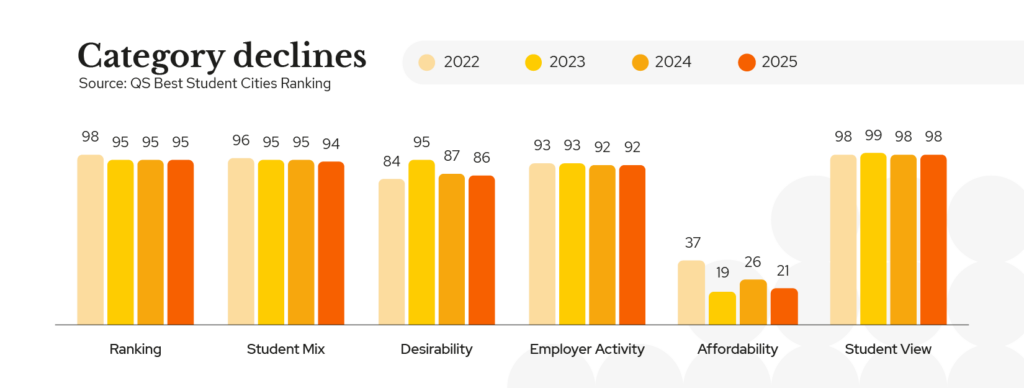
The impact of London’s reputation on student recruitment at its universities
For London universities, being based here has a positive halo effect. There is a tangible association with the London ‘brand’ – it assists students’ familiarity with all London institutions. This is likely a primary driver in non-London-based universities setting up satellite campuses in the capital.
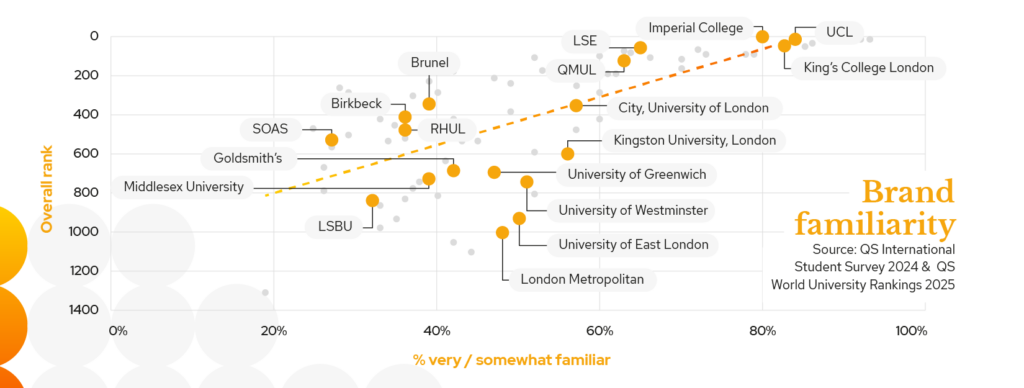
London’s reputation among international students has inevitably buoyed its universities’ International Student Ratio score, which measures the ratio of international students to domestic ones. This has kept the universities’ overall ranking competitive against other top student cities.
Its reputation has also helped London’s lower-ranked universities find and recruit international faculty and students. London’s universities outperform institutions in the rest of the UK in International Faculty and International Student ratios, particularly at lower ranks.
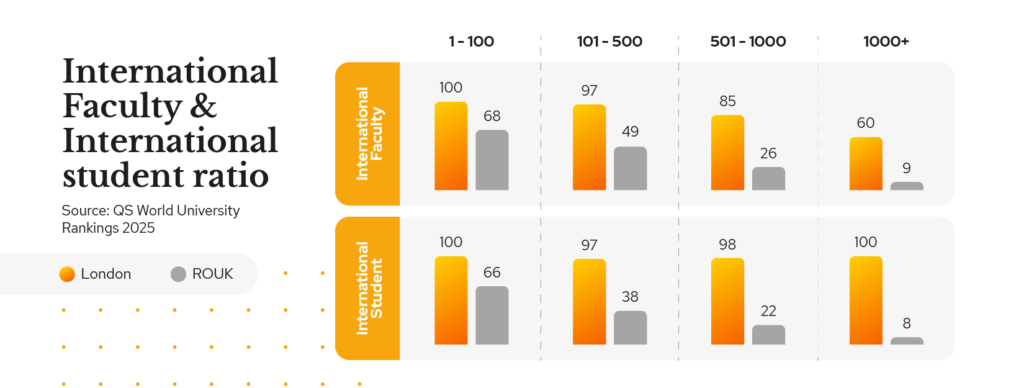
How to leverage identity and place
Clearly London’s universities are using their location to their advantage. But there are 16 UK cities ranked in QS Best Student Cities 2025, which, alongside the US, is the highest number in the world. They’re performing well too – 7 of the top 10 UK cities have improved their rankings in the 2025 edition. So, what are some examples of universities outside of London using place to their advantage?
- Sheffield City Council and the city’s two universities collaborated on a marketing campaign to showcase what makes Sheffield a distinct destination to live and study. This campaign leveraged the city’s diversity, industrial heritage, and sustainability.
- Study In Wales created a university-agnostic campaign, focusing on the opportunities available outside of the classroom.
Not all cities can rely on institutional prestige or proximity to graduate recruiters in the same way London can, but place still plays an important role in student decision-making. In the QS International Student Survey 2024, 25% of students looking to study in the UK said they think it’s important their university is in their preferred town, city or country.
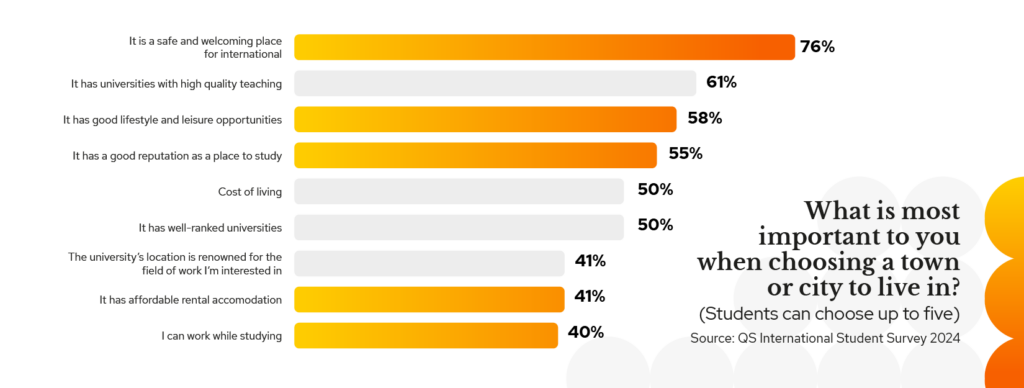
Above, we have collated what students looking to study in the UK are looking for in their study destination. The choices institutions make when promoting their university’s location can make a real difference to institutional performance.
Recommendations
- Align your brand identity to your location. You don’t have to be based in a world-class city for this. James Cook University does a great job using its proximity to natural features like the Great Barrier Reef to create a narrative around quality in marine sciences.
- Promote the safety of your location, working with local authorities and accreditors. Purple Flag is a great example of this. We know through the QS International Student Survey that students seek out universities accredited by country-wide measurement schemes when measuring high-quality teaching – we estimate this logic would hold true for students seeking safety.
- Some UK universities can leverage lower rent costs and cost of living – particularly when comparing it to London – to appeal to more price-sensitive students.
QS can help your institution understand the perception of your university’s location, and help you leverage your hometown to maximise student recruitment effectiveness.



